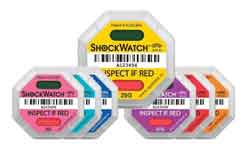RFID in the supply chain is far from reaching the dominance many envisioned when Walmart announced its major case tagging program in 2003.
Despite tons of hype from all quarters and various mandate schedules from Walmart (first 100 suppliers, next 200, etc.), the program never gained much traction against push back on the costs and lack of value by suppliers, technical challenges, and frankly a number of missteps by Walmart itself.
Supply Chain Digest Says... |
 |
| But as Walmart's program soon faded, so did the "spy chips" movement – and it hasn't come back even with growing RFID adoption again. |
 |
What do you say? |
| Click here to send us your comments |
 |
| Click here to see reader feedback |
|
|
The top 100 never did more than tag cartons going to a handful of Walmart DCs (and not all even of 100 got that far). And a few years later, the Walmart program simply died, not with a bang but with a whimper. It frankly set the RFID trajectory back by many years, and in 2004 it would have been hard to imagine the still lack of widespread adoption 16 years later in the consumer goods to retail sector.
That said, there is clearly some progress of late, notably Nike saying last year it would soon tag all its shoes so it could precisely know where each pair was in the supply chain to better meet dynamic demand.
Prior to that, a few retailers including Macy's and Target, began modestly aggressive tagging programs, as with Nike being driven by ecommerce and the need for much higher levels of inventory accuracy. If a customer places an online order and is coming to a store to pick it up, the retailer better be sure that item of inventory it thought it had is really there.
All of which is prelude to an interesting recent article by Jordan Frith on the MIT Press web site, who notes the sometimes fierce resistance from some privacy advocates against RFID technology in its early days– resistance which is almost non-existent now even as RFID starts again to see some higher levels of adoption in consumer good products.
That resistance was led by an organization called Consumers Against Supermarket Privacy Invasion and Numbering (CASPIAN). Frith notes that one of the first major strikes CASPIAN organized came in 2003 when it led a protest against an RFID trial project by Euro apparel brand Benetton. The protests were successful in getting that trial ended.
Frith also cites a protest targeted Walmart and focused on a "smart shelf" pilot project Walmart launched in a Massachusetts store. The "smart shelf," which held RFID-tagged products, would take someone's picture as soon as it detected them removing an item. The protest gained enough traction that Walmart ultimately chose not to deploy the smart shelves. Protests then followed in 2005 and 2006 that focused on Tesco and Levi's use of RFID to tag products, among others.
Also in the mix was a woman named Katherine Albrecht, a former Harvard faculty member, who wrote widely cited book titled "Spy Chips: How Major Corporations and Government Plan to Track Your Every Purchase and Watch Your Every Move" in 2004. The title pretty much says it all.
(See More Below)
|
CATEGORY SPONSOR: SOFTEON |
|
|
| |
|
|
Many RFID related conferences for a while put Albrecht in speaking or panel positions, likely thinking it would appear to show balance by giving a voice to privacy advocates.
But before long, Walmart and some other companies said that if Albrecht was part of the program, they would not come themselves – and naturally Walmart and other giant retailers and brand companies won out.
 But as Walmart's program soon faded, so did the "spy chips" movement – and it hasn't come back even with growing RFID adoption again. But as Walmart's program soon faded, so did the "spy chips" movement – and it hasn't come back even with growing RFID adoption again.
In parallel, Frith points out there was also resistance to what some privacy groups believed were secret plans to implant RFID chips inside humans for some type of nefarious government tracking programs.
In 2006 in Great Britain, the Daily Mail published an article with the attention-grabbing headline of: "Britons could be microchipped like dogs in a decade."
Not much protest activity in that direction today, even as a small but growing number of people are actually getting RFID implants, often to do mundane things like open garage doors and turn on computers with the wave of a hand. Hardly any protests about that, though perhaps that's because the implants are all from free to choose volunteers.
SCDigest will note that there are some current rumors floating around that the end goal of the virus crisis is to put tags in everyone that will keep track of your virus status and, for example, stop you from entering a sporting event if you lack an embedded chip or it doesn't indicate you are immune.
Frith observes that the wind has taken out of the anti-RFID sails in part because there have been no RFID privacy scandals since the protests started in the early 2000s.
However, "there is always the chance something changes and we return to periods of hyper-visibility," Frith concludes. "Only time will tell if RFID continues its fade into the background or once again becomes a source of protest and public contestation."
Do you have any memories of the "Spy Chips" movement? Are RFID privacy concerns just gone - or should consumers be a little worried? Let us know your thoughts at the Feedback section below.
Your Comments/Feedback
|

